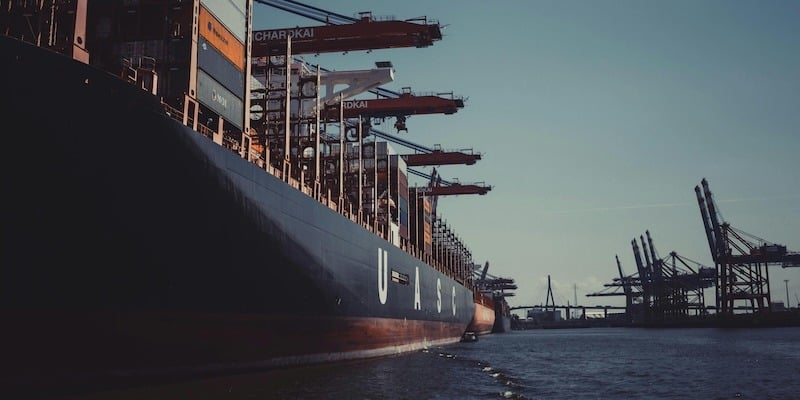On September 12, 2024, David Shapiro, assistant director of programs and partnerships at the Centers for Health, Work & Environment, spoke at the National Academies of Sciences, Engineering, and Medicine as part of the Alcohol at Sea Study Committee. The study, sponsored by the U.S. Coast Guard, aims to assess the prevalence of alcohol misuse among crew members aboard U.S. commercial vessels and provide policy recommendations to enhance safety in this critical sector. Given the maritime industry's unique challenges—extended shifts, isolation, high job demands, and confined living conditions—substance use, particularly alcohol misuse, poses a severe risk to the health and safety of workers and operations.
During his presentation, Shapiro introduced the Total Worker Health® approach, which integrates occupational safety measures with worker well-being strategies. While the maritime industry has historically focused on direct physical hazards like machinery and environmental dangers, this study indicates a shift to consider psychosocial risks, such as stress, fatigue, and substance use. By adopting Total Worker Health (TWH) principles, the sector can address not only the physical but also the mental and emotional health of workers. The hazardous and isolating conditions that maritime workers face often exacerbate alcohol use.
Urgent Need to Address Alcohol Misuse in Maritime Work
Jobs in the maritime industry present a unique set of stressors. Crewmembers often spend weeks or months at sea, with limited communication with loved ones, confined living quarters, and challenging working conditions. These factors contribute to behavioral health challenges, including anxiety, depression, and substance use disorders (SUDs). Alcohol is a significant concern, as it can impair judgment, reduce reaction times, and lead to dangerous behaviors that jeopardize not only the individual but also the entire crew's safety.
Shapiro states, "Alcohol misuse in the maritime industry is not just a safety issue—it's a well-being issue. The unique stressors maritime workers face, from isolation to fatigue, increase the risk of substance use. However, by adopting recovery-friendly policies and a Total Worker Health approach, we can create safer, more supportive environments where workers can thrive both on and off the job.”
In addition to discussing these challenges, Shapiro explored how Colorado’s Recovery Friendly Workplace model can be adapted for the maritime sector. This model emphasizes stigma-free policies, mental health education, and access to recovery resources to create environments where workers in recovery from substance use disorders feel supported. Importantly, recovery-friendly workplaces treat SUDs as they would any other chronic health condition, providing workers with the tools they need to succeed both personally and professionally.
Envisioning a Safer Future at Sea
The National Academies' work on this issue reflects a broader understanding of worker safety and health. They recognize that addressing alcohol misuse at sea requires both regulatory reform and workplace culture shifts. By integrating TWH and recovery-friendly workplace policies, practices, and programs, the maritime industry can better protect its workers, reduce alcohol-related incidents, and foster long-term recovery. Policymakers play a crucial role in implementing these changes, and their involvement is essential for the success of these initiatives.
The Alcohol at Sea Study will ultimately provide a roadmap for maritime operators, policymakers, and safety professionals, offering evidence-based recommendations to improve the lives of maritime workers. With these changes, we can look forward to a future where every maritime worker returns home safely, healthier, and more supported than ever before.
For more information about the Alcohol at Sea study and to stay updated on its progress, visit the National Academies' project page. Engagement is crucial in our collective efforts to address alcohol misuse and safety issues in the maritime industry.
About the Center for Health, Work & Environment
The Center for Health, Work & Environment is an academic center within the Colorado School of Public Health. The Center is one of 10 Centers of Excellence for Total Worker Health® and houses the Mountain & Plains Education and Research Center (MAP ERC), one of 18 centers of its kind supported by the National Institute for Occupational Safety and Health (NIOSH). The Center team works with faculty, students, and community partners to advance worker health, safety, and well-being. The Center is committed to developing education, research, and public health practice initiatives that combat the problems of racial and environmental inequity and injustice facing workers. To effectively address the future of work, we aim to ensure a healthier and safer workplace for all.
Main offices for the Center are located at the University of Colorado Anschutz Medical Campus in Aurora, Colorado.






%20(2).png)